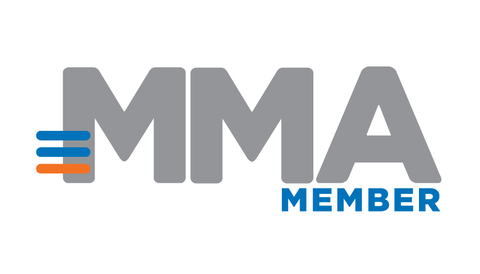May 30, 2012
AdTruth Wants to Be Standard for Mobile Tracking
ClickZ by Susan Kuchinskas
AdTruth thinks its digital fingerprinting technology is the best way to address stringent new privacy requirements while letting marketers measure ad performance across mobile devices. The company is bootstrapping an initiative it hopes will lead to wide industry adoption of its product.
Today, it announced the reaction to two meetings held with 18 companies to garner reaction to its product and help determine future messaging and direction. "The industry needs a solution it can agree on to facilitate and enable digital media - most acutely in mobile - but also to deal with challenges to the cookie on the desktop," said James Lamberti, vice president and general manager of AdTruth, a division of 41st Parameter. "We didn't want to go charging off without having discussions with multiple players in the ecosystem." The goal of the two meetings, in San Francisco and Munich, was to get feedback from potential customers about the product, which has patented technology that uses time-differential linking as one strategy to uniquely identify devices. "This was less about education and more about getting their very detailed feedback on how we needed to execute and go to market in a way that made them comfortable," Lamberti said. The participants included representatives from advertising and marketing agencies, mobile application developers, advertising exchanges, advertising networks, demand-side platforms , data providers, ad serving technology companies, and major publishers. Among them were mobile ad network InMobi; King.com, an online game site; On Device Research, which uses the mobile Internet to gain access to consumer opinions at any time, place, or country; and ad agencies Razorfish and Somo Global. In a statement, Surag Patel, director of global research for InMobi, said, "AdTruth is taking important steps to educate the industry. Between these workgroup meetings and its recently published white paper on audience recognition, the company is leading the discussion around performance and privacy moving forward." Carl Uminski, co-founder and COO of Somo Global, an independent mobile agency with clients including Glamour magazine and Audi, told ClickZ.com, "They are bringing out an elegant new technology with privacy in mind, and that's interesting to me. Tracking like the web on mobile is not the answer for the future." Lamberti said that both the Mobile Marketing Association and the Interactive Advertising Bureau are also in discussions with AdTruth but representatives from those organizations did not take part in the working groups. Why not let one of these orgs take the lead in identifying the best way to handle tracking on mobile devices? "Those bodies won't and shouldn't endorse a company. What they will do is help usher in a new technology that will provide what the industry needs." Uminski said he thought it's too early for the MMA or IAB to push for a single approach to mobile device identification, because the market is changing so fast. Nevertheless, there is also a need for speed in finding a solution for device identification, now that Apple is restricting access to the UDID, the unique identifier for each of its devices. "UDID has accelerated things like AdTruth trying to get to market quickly," he said. AdTruth's seven-year-old technology was developed to prevent fraud by recognizing troublesome devices on the Internet. The company now is offering it to help marketers track, target, and retargetconsumers. It uses more than 100 parameters, including milliseconds in differences in the internal clock setting, to recognize a particular device anonymously. The technology generates a digital fingerprint that resides on a web publisher's servers, so the servers can recognize the device when it makes another page request. AdTruth says its technology is a better alternative than pop-up permission boxes to meet the EU's new online privacy standards, for which enforcement is expected to begin this month. Lamberti said, "The working groups are as much about device recognition technology as about us. We think we're the leader, but everyone can go out and sell their solutions."

